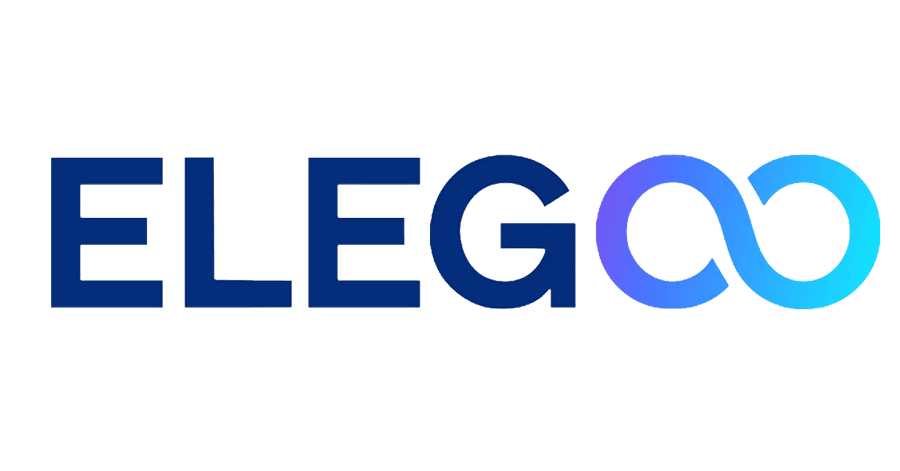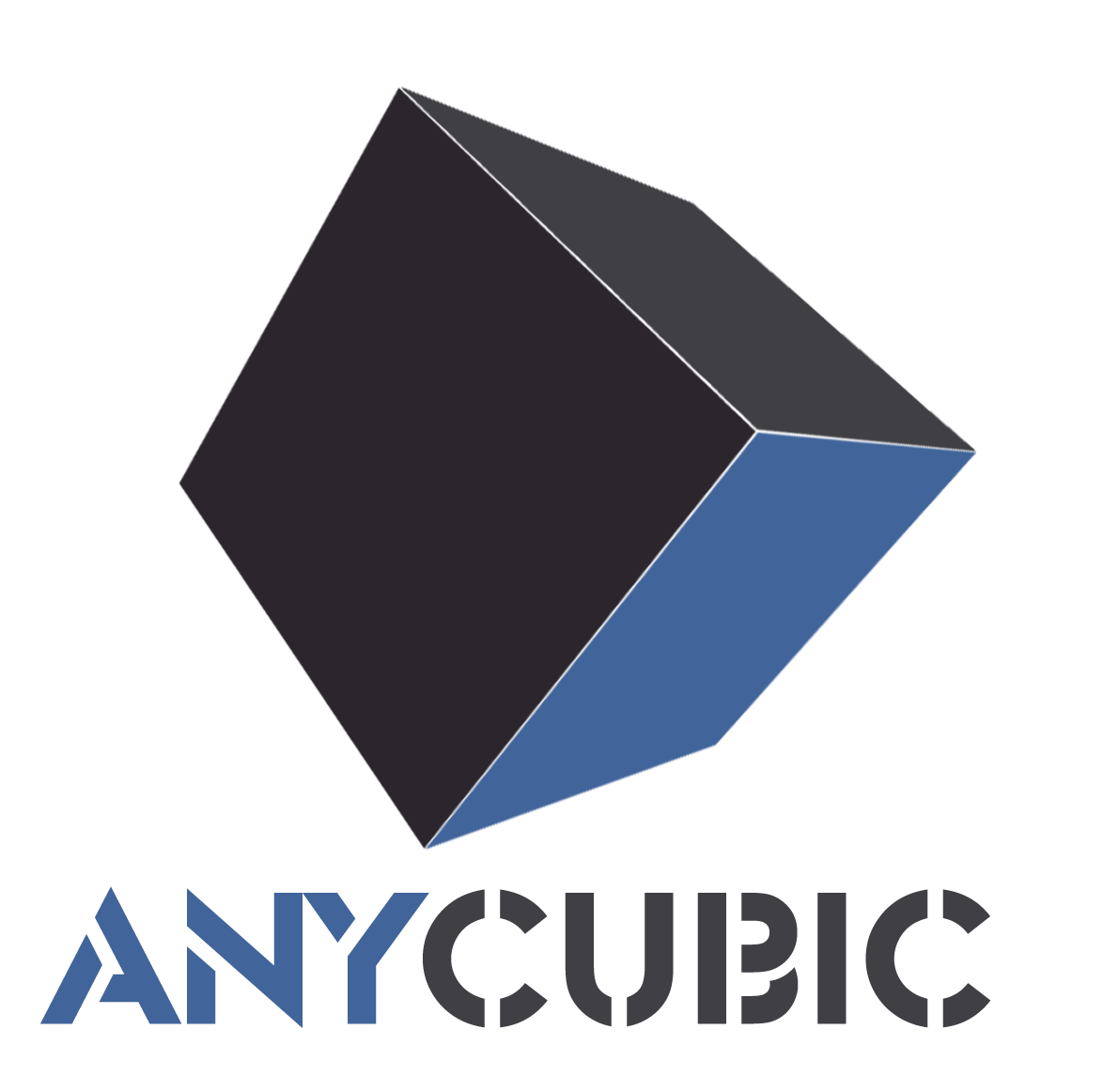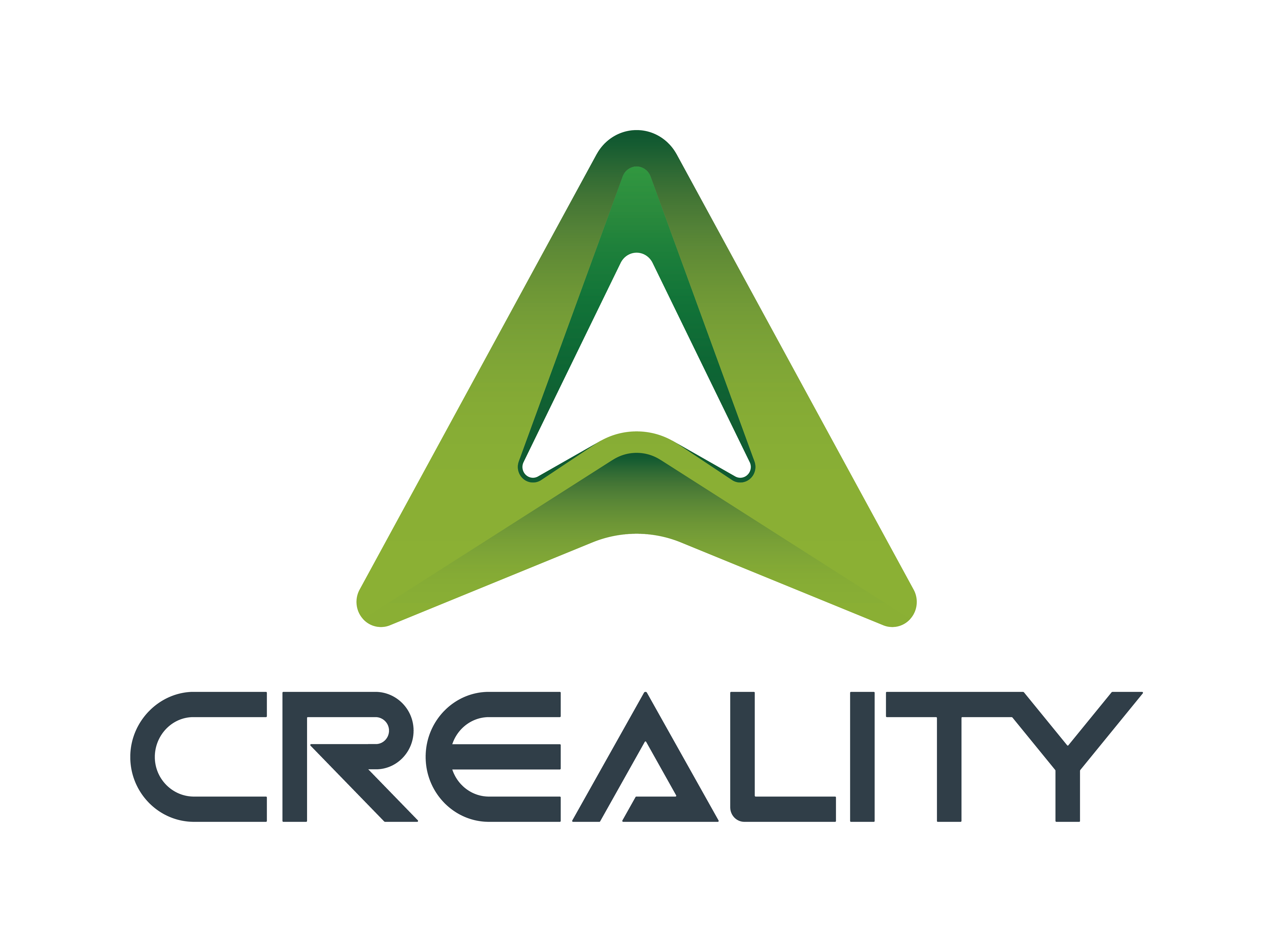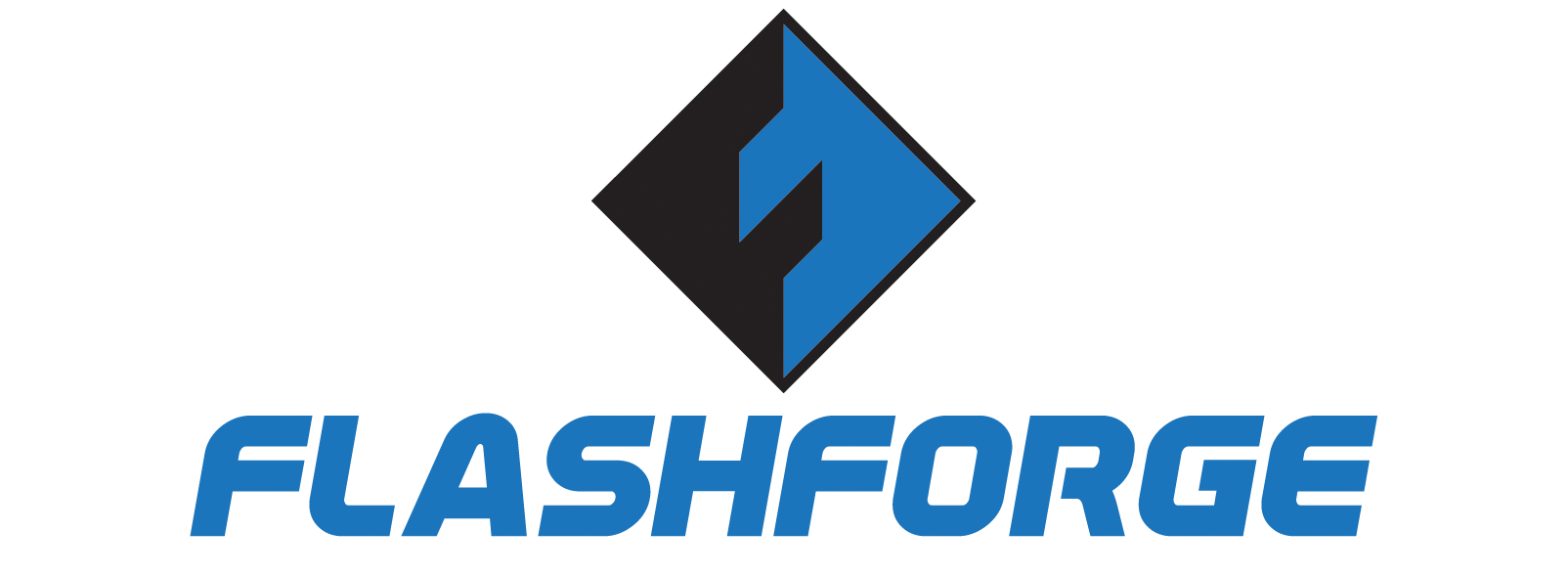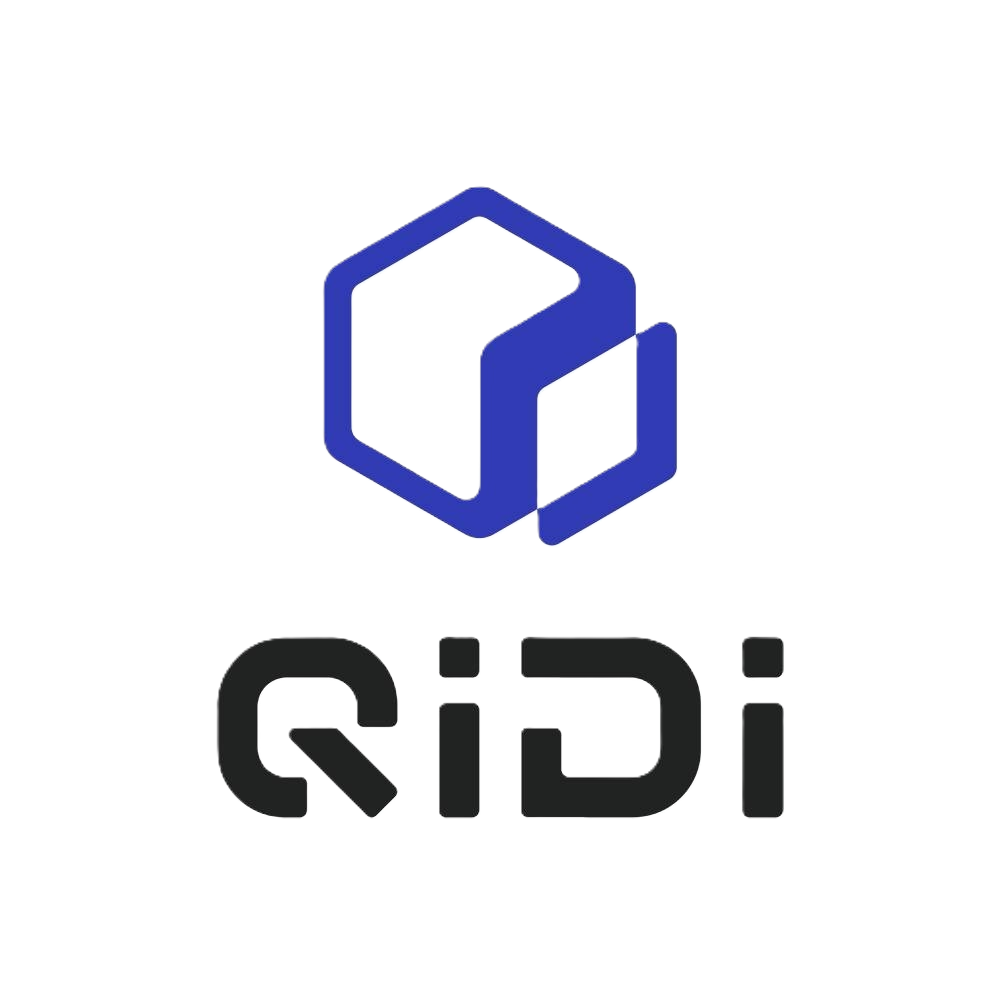Elegoo and Anycubic are two of the strongest forces in the budget-to-midrange 3D printing world. Both brands launched in China (Elegoo in 2015, Anycubic around the same time) and quickly gained reputations for delivering high-performance machines at surprisingly low prices. Elegoo initially made waves with its Mars resin printers, which helped bring MSLA printing (Masked Stereolithography – a resin printing method using an LCD to cure resin) to hobbyists at an affordable level. They later expanded into FDM printing (Fused Deposition Modeling – printing by melting and layering filament) with the Neptune series.
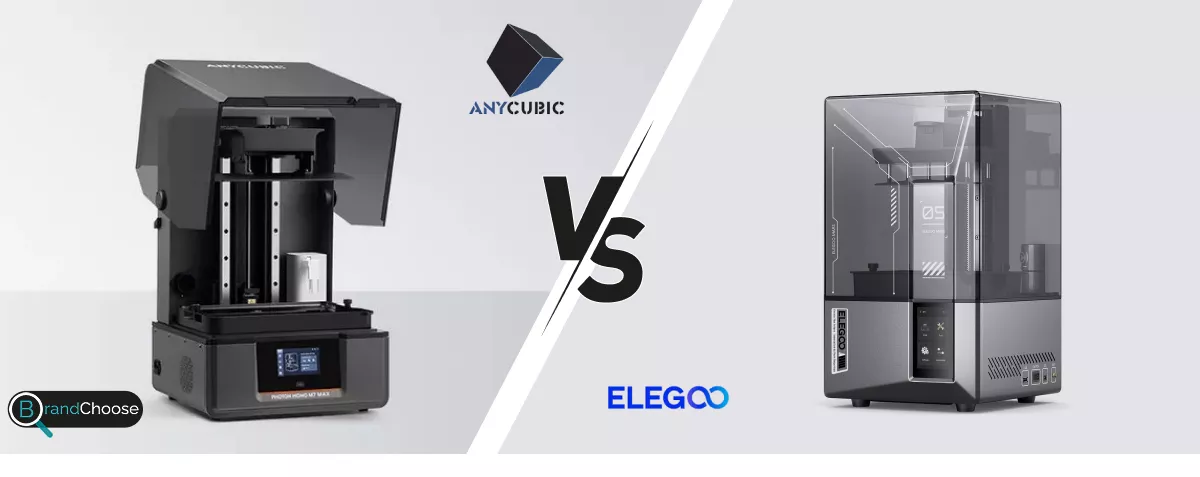
Anycubic took a similar path, with early success in both Photon resin and Kobra FDM lines. Known for delivering high-quality out-of-the-box prints, Anycubic built a loyal following for its ease of use and reliable results. Today, both brands compete aggressively with rapid innovation, especially in speed, resolution, and affordability.
Product Selection
🟦 Anycubic offers a well-balanced mix of affordability and out-of-the-box performance, especially in both resin (Photon) and FDM (Kobra) segments. It’s an ideal choice for beginners and intermediate users looking for value without hassle.
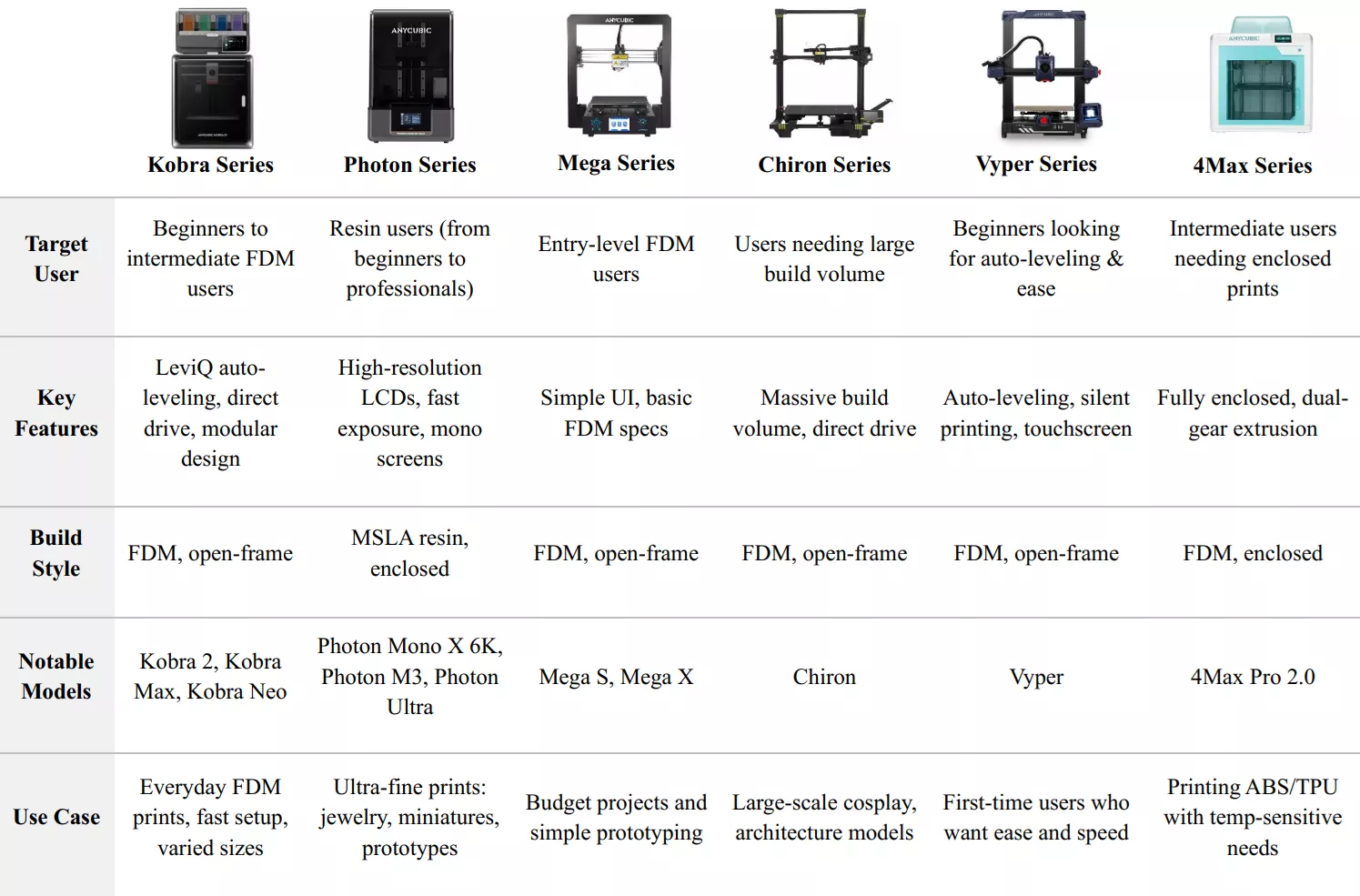
🟪 Elegoo made its mark with resin printers like the Mars and Saturn series, then expanded into capable FDM machines with Neptune. Known for high detail, great pricing, and a strong user community, it’s a favorite among modelers and makers alike.
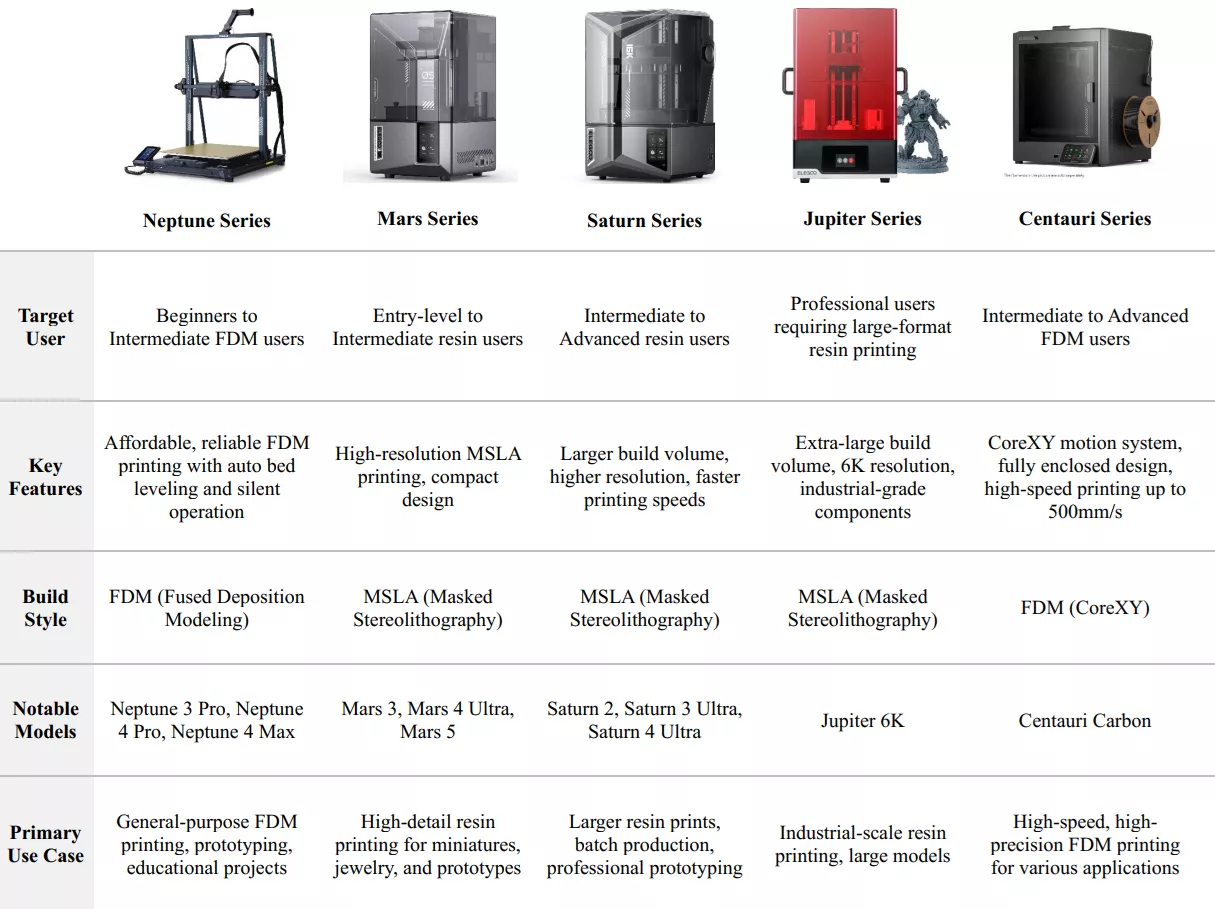
Ease of Use
🟦 Anycubic machines are generally easier to set up and operate. Most arrive 90% pre-assembled and feature LeviQ auto-levelling (inductive probe plus mesh compensation), responsive touchscreens, and intuitive slicer software. Photon Workshop for resin and Kobra Cura for FDM use sensible defaults and clear wizards for first-layer tuning.
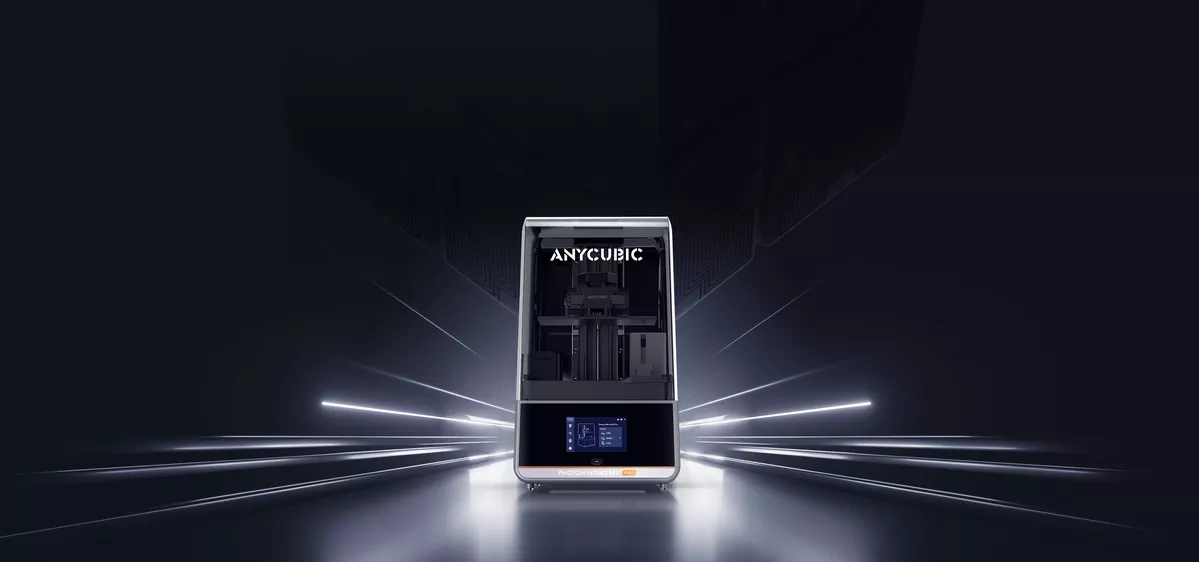
🟪 Elegoo also emphasizes user-friendliness. Recent Neptune 4 models include auto-levelling, silent stepper drivers, and fast 800 mm/s jog moves on a clean UI. For slicing, ChiTuBox (industry standard for resin) is bundled, and Elegoo Cura handles FDM. Some users note that Anycubic’s software polish and Wi-Fi setup are a step ahead.

✅ Anycubic is a bit more beginner-friendly out of the box; Elegoo is close but may need a few extra clicks.
Cost & Affordability
🟦 Anycubic often prices aggressively: Photon Mono 4 K drops below $300, and the multi-material Kobra 3 Combo stays under $1,000 — unusual for four-color capability.
🟪 Elegoo matches that intensity: Mars 3, Saturn 2, and Neptune 4 Pro all bundle advanced features at sub-$500–$600 ranges. Even the large-bed Neptune 4 Max undercuts many rivals in cost per cubic centimetre.
✅ Tie — both brands deliver top-tier value at nearly every price point.
Print Quality & Speed
🟦 Anycubic counters with its Photon and Kobra series, which also deliver high-quality results. Photon resin printers are crisp out of the box, while Kobra FDM units can match Elegoo’s smoothness after some tuning. Overall, Elegoo holds a slight edge in resin detail and first-layer consistency.
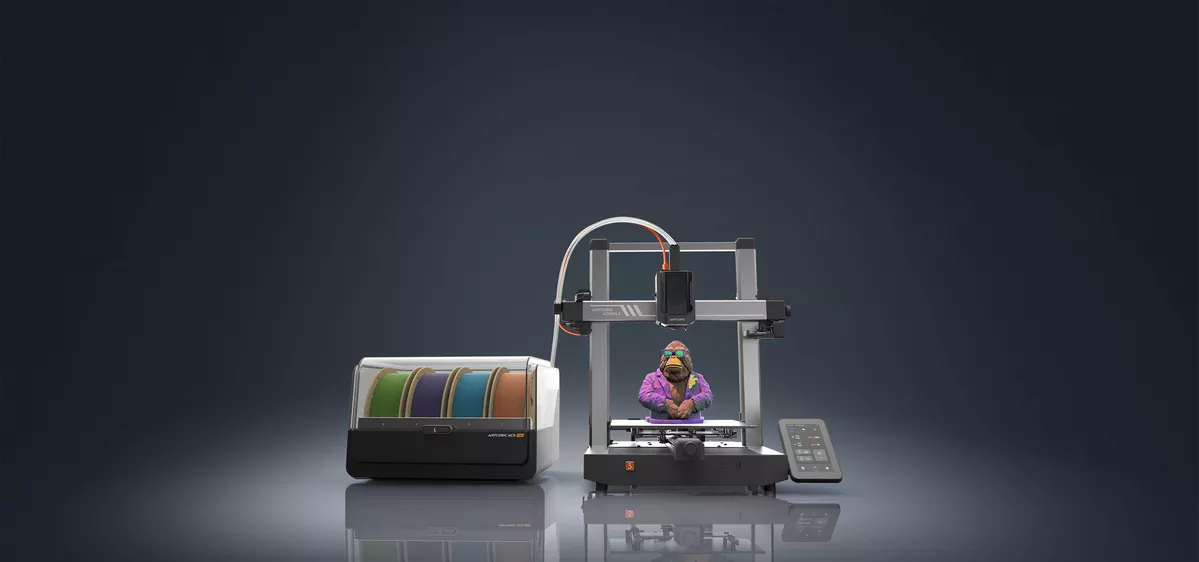
🟪 Elegoo printers, particularly in the Mars and Saturn series, are widely respected for producing exceptionally detailed resin prints that require minimal post-processing. Their FDM Neptune 4 line also performs well, offering smooth surfaces and solid speed when paired with Klipper firmware (a high-performance motion controller that offloads step calculations for faster, more precise moves).

✅ Elegoo is relatively better in print quality and speed.
Material Compatibility
🟦 Anycubic supports most common materials like PLA, PETG, TPU, and even ABS (in enclosed models such as the Kobra Max Combo, where a chamber holds heat to reduce warping). Their resin printers accept a wide range of third-party resins — including flexible, tough, and water-washable variants — with profiles that work well without extra tweaking.
🟪 Elegoo is also open to third-party filaments and resins. Newer Neptune printers ship with all-metal hotends (no PTFE liner, so they can safely exceed 260 °C), making them compatible with Nylon, ASA, and some carbon-fiber composites after minor upgrades. On the resin side, Mars and Saturn series are compatible with every major resin chemistry, from dental to castable wax.
✅ Both brands perform well; Elegoo supports more high-temp materials with some tuning, while Anycubic makes compatibility smoother overall.
Build Volume & Variety
🟦 Anycubic offers a solid range of build volumes, including compact resin printers like the Photon Mono 2, and larger FDM options such as the Kobra Max and Kobra 3 Max Combo (beds over 400 mm in at least one axis). The lineup covers most consumer needs without overwhelming duplication.
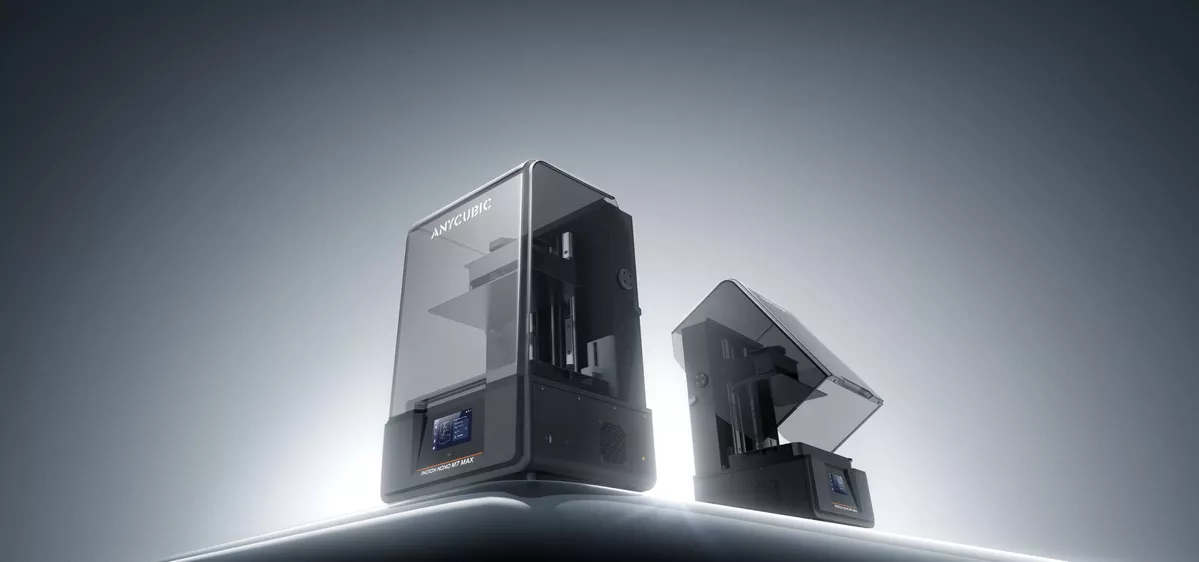
🟪 Elegoo competes well here too, especially with the Neptune 4 Max (420 × 420 × 480 mm) and Saturn 3 Ultra resin printers, which push large-format capacity at surprisingly low prices. Overall, Elegoo slightly edges ahead on absolute maximum size in both FDM and resin categories.

✅ Elegoo takes the lead for large-format print capacity at affordable prices.
Reliability & Durability
🟦 Anycubic machines also score high on reliability: Photon and Kobra series show solid uptime with rigid frames and decent QC. Early batches occasionally had loose connectors or uneven build plates, but customer support and replacement policies have improved in recent years.
🟪 Elegoo’s Mars and Saturn printers are praised for stiff Z-rails and long LCD life (often beyond 2,000 hours). Neptune 4 FDM units use reinforced gantries and dual cooling blowers. Minor glitches — like occasional touchscreen freeze or fan buzz — are reported but uncommon.
✅ Both brands are solid performers over the long haul, with only minor model-specific quirks. However Elegoo has a slight edge in reliability and durability.
Maintenance
🟦 Anycubic prioritizes simplicity. FEP film swaps on resin vats use four captive screws, and nozzle changes on Kobra FDM printers are tool-free with a spring clamp. Firmware-guided wizards cover Z-offset, belt tension, and PID tuning, making upkeep approachable for newcomers.
🟪 Elegoo provides straightforward maintenance too, with step-by-step PDFs for vat cleaning, belt tensioning, and hotend unclogging. For bigger jobs (dual Z-axis realignment or motherboard swaps) the active Reddit community fills gaps, but hands-on effort is higher than on Anycubic’s more modular designs.
✅ Anycubic is slightly ahead for ease of maintenance; Elegoo is still user-friendly but can require more manual effort on certain models.
Technology & Features
🟦 Anycubic leads in automation and workflow polish. The Kobra 3 Combo introduces multi-material printing via a four-port AMS-style hub, plus auto-bed levelling, live Z correction, and integrated Wi-Fi with cloud model library sync. Firmware wizards handle flow calibration and first-layer inspection, reducing failed prints.
🟪 Elegoo has pushed harder into headline specs lately. The Saturn 4 Ultra features a 16 K LCD, smart resin sensors that pause prints when the vat is low, and dual linear rails for wobble-free Z motion. Neptune 4 Max bundles Klipper out of the box, enabling resonance compensation and real-time pressure advance for crisper corners at 500 mm/s.
✅ Elegoo offers more hardware-driven innovation; Anycubic focuses on workflow efficiency and polish.
🟦 Go with Anycubic if you are:
- A beginner who wants plug-and-play simplicity with guided firmware wizards
- Primarily interested in resin printing, especially for miniatures or dental models
- Someone who values automated features (auto-levelling, flow calibration) and a polished cloud-connected workflow
🟪 Go with Elegoo if you are:
- Looking for the absolute highest resolution in consumer resin printers (up to 16 K)
- Interested in large-format, high-speed FDM printing via Klipper out of the box
- Comfortable with a bit of manual tuning to unlock maximum speed and build volume
Conclusion
Anycubic is ideal for users who want a simple, consistent experience across FDM and resin, especially beginners and casual users. Elegoo appeals to those who prioritize raw printing performance, resolution, and large-format capability—especially resin enthusiasts and budget-conscious power users. Both brands deliver amazing value; the better fit depends on how much you want to fine-tune versus how fast you want to start printing.

